Brexit Negotiations Have Started. Chapter 1: Monnet vs. Churchill
Adelina Marini, June 21, 2017
 Three months after Britain's Prime Minister Theresa May sent a notification to Brussels saying Great Britain was leaving the European Union, the negotiations on the so-called Brexit began on June 19, in a typical European fashion - with thin hints and humour. During the opening negotiating session, the agenda of the meetings and the terms of the negotiations were agreed on. Negotiating rounds will be organised according to the methodology proposed by EU Chief Negotiator Michel Barnier - one week a month, with proposals being made and exchanged for the rest of the time. The next round of talks will take place in the week starting July 17. The main issues of the divorce are divided into three negotiation working groups: citizens' rights; settlement of accounts; others.
Three months after Britain's Prime Minister Theresa May sent a notification to Brussels saying Great Britain was leaving the European Union, the negotiations on the so-called Brexit began on June 19, in a typical European fashion - with thin hints and humour. During the opening negotiating session, the agenda of the meetings and the terms of the negotiations were agreed on. Negotiating rounds will be organised according to the methodology proposed by EU Chief Negotiator Michel Barnier - one week a month, with proposals being made and exchanged for the rest of the time. The next round of talks will take place in the week starting July 17. The main issues of the divorce are divided into three negotiation working groups: citizens' rights; settlement of accounts; others.
The main work of the negotiations will take place in the groups, and Michel Barnier and David Davis, British Secretary of State for Exiting the European Union, will deal with the difficulties and obstacles that have arisen. Negotiations on the settlement of the border issue between the Republic of Ireland and Northern Ireland will be conducted separately and in parallel with the other negotiations. The right hand people of the two main negotiators - Oliver Robbins on the British side and Sabine Weyand on the European side - are engaged with those. British media wrote on Monday, quoting a senior British diplomat, that Sabine Weyand had the brain power of a nuclear reactor.
Such power will be particularly needed on this subject, as it carries a very high political charge and requires particular creativity to solve two mutually exclusive problems - how to avoid raising the so-called "hard border" between Northern Ireland and the Republic of Ireland, meaning to maintain the common travel area while respecting the rules of the single market and the EU's external borders. "The protection of the Good Friday Agreement and maintenance of the common travel area are the most urgent issues to discuss", European Chief Negotiator Michel Barnier said after the meeting. The Good Friday agreement ended the 30-year-old conflict between Catholics and Protestants in Northern Ireland, called the "The Troubles" in Britain.
The additional political charge and sensitivity on the subject stem from the fact that British Prime Minister Theresa May called snap elections at a time when the Conservative Party had a large majority in parliament but lost it on June 8 and is currently negotiating a coalition government with the Democratic Unionist Party - a deeply conservative and Eurosceptic party - which is considered a problem for the Good Friday Agreement, since it was signed not only between the governments of the United Kingdom and the Republic of Ireland, but is also an inter-party agreement. It is a problem because if the DUP gets into government, this could break the inter-party balance in Northern Ireland, and may once again inflame old wounds.
David Davis said the talks on the Irish question had taken up most of the negotiations time on June 19, discussing two aspects - the first is political sensitivity and the other is the firm determination that the border should remain as invisible as possible to avoid undermining the peace process. He suggested that the talks on this issue will continue to the very end of the Brexit process, which means up until an agreement is reached on future EU-UK relations. This is planned to take place in the second phase of the negotiations, which will begin when an agreement on the first one is reached, which includes guaranteeing citizens' rights after the Brexit and the settlement of financial relations between the two sides.
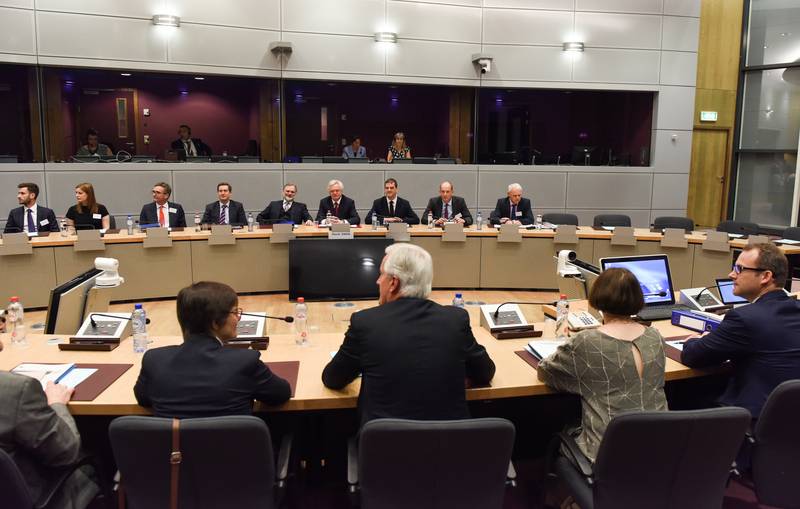 Recently, the European Commission has published its negotiating positions on the two subjects. On the protection of citizens' rights, the EU demands that the UK treats its citizens and EU citizens equally, and under EU law at that. Citizens of the 27 Member States or British citizens who have resided legally in the UK and the 27th respectively on the date of entry into force of the Brexit agreement are to be considered legal residents even if they do not have a residence document. Documents must be issued free of charge or charged at the same price as the British citizens' papers. These rights should also include the families of those living in the UK or the EU for the rest of their lives and regardless of their nationality.
Recently, the European Commission has published its negotiating positions on the two subjects. On the protection of citizens' rights, the EU demands that the UK treats its citizens and EU citizens equally, and under EU law at that. Citizens of the 27 Member States or British citizens who have resided legally in the UK and the 27th respectively on the date of entry into force of the Brexit agreement are to be considered legal residents even if they do not have a residence document. Documents must be issued free of charge or charged at the same price as the British citizens' papers. These rights should also include the families of those living in the UK or the EU for the rest of their lives and regardless of their nationality.
EU citizens, British citizens and their families must have the same rights as before of social benefits for old-age, sickness, disability, etc. This also applies to those who left the Kingdom or the 27 at the date of the Brexit and are currently benefiting from the right to transfer income (this is especially true for pensioners). In its document, the EU demands EU27 and UK citizens to be able to continue to change their status and to collect periods that ensure certain rights. For example, a student may become an EU worker after graduating without having to comply with the migration law applicable to third-country nationals; an unemployed person to become employed and also to be subject to EU rules; citizens who have lived less than 5 years at the date of Brexit to continue to collect the necessary years in order to obtain a residence permit, as is the case so far.
Regarding the settlement of accounts, in a separate paper the Commission proposes the following methodology for calculating UK liabilities: percentage of all UK own resources in the EU budget (VAT revenue and national contributions calculated on the basis of Gross National Income) and the total amount of own resources transferred from the member states (EU28) for the period 2014-2018. Michel Barnier has been very stubbornly avoiding the circulation of any preliminary sums interpreted in the Kingdom as a bill for leaving, so there is not even an indicative figure in this document. When the European Council considers that significant progress has been made on these two subjects, then the second phase - the negotiations on future relations - can begin.
David Davis said there is a lot of common ground on the issue of citizens' rights and expects an agreement to be reached relatively quickly. The British chief negotiator also announced that next week the British government is expected to publish its proposal on civil rights and negotiations in the working group are to begin immediately.
Your responsibility, not ours
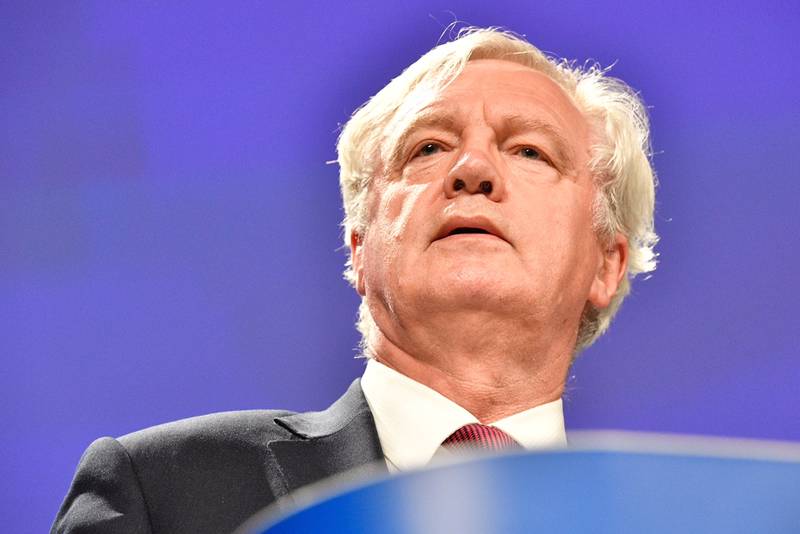
The British representative expressed satisfaction with the first round of talks, pointing out that he was encouraged by the constructive approach. In turn, Michel Barnier said he would always be constructive and would work with Great Britain, not against it. He stressed that a fair deal is better than no deal. "There will be no hostility on my side. I will display a constructive attitude firmly based on interest and support of the 27. And I will all the time seek to the continued support of the European Parliament in close cooperation with President [Antonio] Tajani and Guy Verhofstadt [EP's chief negotiator]", said the French chief negotiator of the EU, who throughout the press conference alternated French with English, and British journalists apologised each time when asking a question in English instead of French.
In his opening remarks, David Davis said the start of the talks was promising. "Now, we have a shared responsibility to deliver quick and substantive progress", he said, but was countered by his European interlocutor who said everyone should take their responsibility and face the consequences of their decisions. "You ask if there's anywhere we've made a concession. Well, look, the UK has decided to leave the EU. It's not the other way round. The UK is going to leave the EU, the single market and the customs union, not the other way round", repeated once again Mr Barnier, adding: "So, I'm not in a frame of mind to make concessions or ask for concessions. It's not about punishment, it's not about revenge. Basically, we're implementing the decision taken by the UK to leave the EU and unravel 43 years of patiently built relations. I will do all I can to put emotions to one side and stick to the facts, the figures and the legal basis", the European negotiator noted.
He did not miss to remind his British colleague how long have they known each other: "In fact, we go back to 1995 because we were both European affairs ministers of the UK and France at the time, and we began negotiations for the Amsterdam treaty at the time. I could perhaps come back some other day", suggested Michel Barnier. Under the Amsterdam Treaty, signed in 1997 and came into force in 1999, member states agreed to significantly increase the powers of the European Parliament. This treaty also set the beginning of the common foreign and security policy, the integration of which has only begun to strengthen in the last few months. This treaty created the post of EU High Representative for Foreign Affairs whose role was re-enforced with the Lisbon Treaty, currently in force.
Michel Barnier decided to quote Jean Monnet, one of the founding fathers of the European Union, who, when asked whether he was a pessimist or an optimist, said: "I'm neither optimistic nor pessimistic. I am determined“. As if knowing what Michel Barnier would say, David Davis also ended with a quote from former British Prime Minister Winston Churchill, who once said that the pessimist sees difficulties in every opportunity, whereas the optimist sees an opportunity in every difficulty, "and so bridging between Churchill and Monnet, I'm certainly a determined optimist", were the words of the British negotiator.
If there is no transparency, there will be leaks
One of the most problematic areas in the negotiations between the two sides seems to be transparency of the negotiation process. This is clear both from the agreed terms of the negotiations and from the speeches of the two chief negotiators. Right from the start, the EU has declared transparency to be its red line and all institutional and national leaders use every opportunity to emphasise that. However, the negotiated terms and conditions stipulate that each party in the negotiations has the right to impose restrictions on information. "Any disclosure by either the United Kingdom or the European Commission of documents originating from the other Party will be subject to prior consultation of 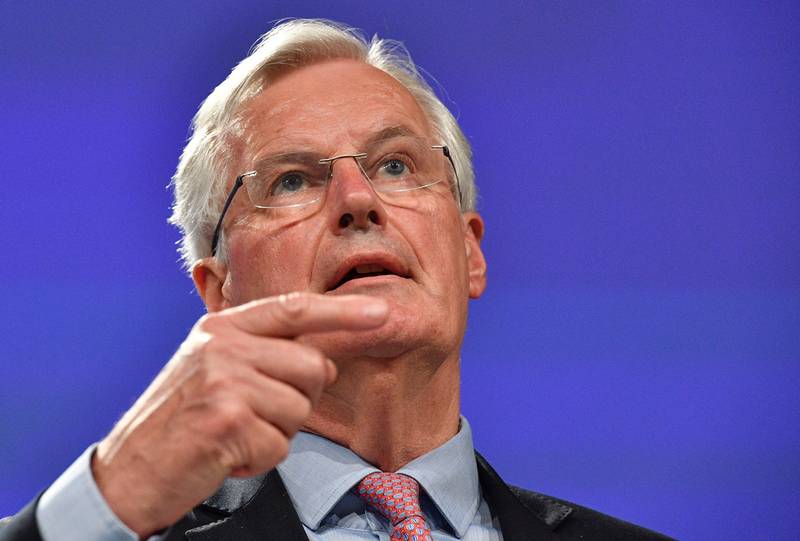 the originating party". The document also states that "where possible, both Parties will seek to agree public statements relating to negotiating rounds".
the originating party". The document also states that "where possible, both Parties will seek to agree public statements relating to negotiating rounds".
It is clear from Michel Barnier's words that Great Britain is obstructing maximum transparency. He said "Well, we can each reply to that in our respective ways and everybody is free to respond as they wish but my personal point of view in coordination with President [Donald] Tusk and President [Jean-Claude] Juncker, our intention is to be fully transparent in a completely unusual way because this is an unusual negotiation, an extraordinary negotiation. And because this exceptional dimension we intend to have as broad and open a debate as possible". Finally, he seemed to threaten his British counterpart by saying he prefers transparency to information leaks.
David Davis, in turn, said he and the prime minister would seek maximum transparency in line with normal negotiations, but promised "more transparent than any other negotiation in modern history". Davis added that he also prefers transparent information to leaked information or secret briefings. His words were not convincing against the background of the special briefing for British journalists half an hour before the official press conference where even some correspondents of the largest international but also British media were not allowed.
On Thursday, Michel Barnier will report to the leaders of the 27 at their June summit about the start of negotiations. During the summit (June 22-23), the British prime minister is also expected to inform her colleagues about Britain's approach to citizens' rights.
Translated by Stanimir Stoev
 Angela Merkel | © Council of the EU
Angela Merkel | © Council of the EU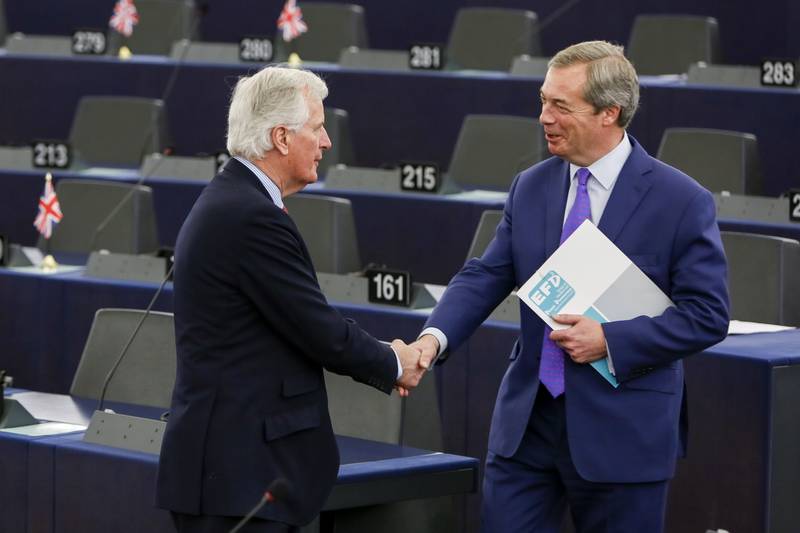 Michel Barnier, Nigel Farage | © European Parliament
Michel Barnier, Nigel Farage | © European Parliament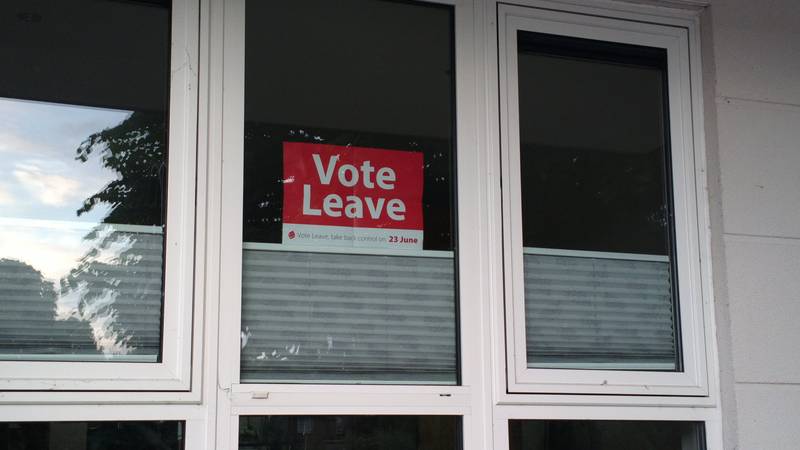 | © euinside
| © euinside